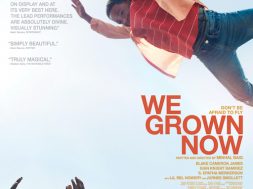By Kimberly Carter:(Featured Photo Photo by Samuel Aboh on Unsplash) Last week, my six-year-old daughter Kellan returned from a Target run with my aunt. She was beaming. My aunt had bought her a new Barbie doll and she eagerly thrust it forward, imploring me to open the package so she could play with her new toy. I looked down at the box and exhaled. The doll’s straight, blond hair was perfectly coiffed around her tan white features and her blue eyes looked back at me. I asked Kellan why she had selected this doll versus all the other dolls available. She just shrugged her shoulders, “I don’t know…” she said cautiously. “I just wanted her. She was the prettiest.” As a black woman, her words stung, but I wasn’t entirely surprised.
You see, despite my constant reinforcement that her brown skin is beautiful and that her tight curls and big brown eyes are the perfect combinations, it’s hard to compete with the constant messaging Kellan receives from television, social media, her friends at school and society at large—that light skin is beautiful and that brown skin—her skin—is not. That white people are smarter, more successful, more “civilized” than black and brown people. It is a constant struggle in every setting, even in our home.

This exchange with my daughter drove home an issue that I have been grappling with the last several weeks—the interplay between the larger discussion of race in our society and how it relates to and is internalized by the “individual.” As a person of color, my perspective of race and racial equality is often different than my white counterparts. I live in a predominately white neighborhood (we are the only black family within several blocks), I went to predominately white private schools (a scholarship kid) and I have exclusively worked in predominately white organizations. I have seen firsthand the racial inequities on many levels between white America and the other America experienced by black and brown people. One thing I have learned is this—racism can be expressed interpersonally and institutionally (i.e. systemic racism). A few of the earlier posts by my esteemed colleagues on the firm’s Task Force for Racial Equality have shared their own personal experiences with interpersonal racism. These experiences are undeniable, deeply impactful and must never be minimalized. But perhaps more pressing (and unquestionably more daunting) a task to address is the systemic racism that has a firm hold on American society and continues to accumulate and perpetuate long-standing racialized practices.

But what is “systemic racism”? I can give you the scholarly definition, but what does it look like in practice and how do individuals—like you and me— fit in? Here’s my short primer.
Think of our society as a computer, programmed by the beliefs and experiences of its components (us). Now think of systemic racism as a virus, one that was embedded in the computer system from its inception and never removed or addressed. As long as the virus remains, the computer cannot run properly and produces disparate outcomes for different users. After a while, so imbedded becomes the virus (having infiltrated every subsystem) that it becomes very difficult to pinpoint the exact problem and the solution seems elusive. Education, the criminal justice system, housing, and employment favor whites over blacks. Even the administration of healthcare and infant mortality rates show better outcomes for white patients versus black patients. These disparities have persisted for decades because the systems themselves were designed to benefit whites over people of color and no one ever fixed them. So even decades after the passage of civil rights legislation and well-intentioned proponents of racial equality, systemic racism persists because the flawed systems remain.

Systemic racism perpetuates the idea of separateness, resulting in a continued legacy of unconscious bias. Our minds are infected with the byproducts of racism before we are even old enough to remember or process their introduction into our belief system, like my daughter Kellan. From seeing the confederate flag emblazoned on the Dukes of Hazard racecar “The General Lee,” to learning of the “great history of the confederacy” in U.S. history class and watching the idealized depiction of slavery as a benevolent institution in Gone With The Wind. We learn from our environment, often passive recipients of information being perpetuated by a broken system meant to maintain the status quo—that white is better.
Dismantling systemic racism isn’t something that we can simply look to our leaders to resolve or to be hashed out in corporate board rooms (although necessary pieces of the solution). It starts with reflecting on our individual biases and recognizing that an unfair system originally and intentionally designed to keep people of color out…uneducated, underemployed and disproportionately imprisoned…will continue to do exactly what it was designed to do, even if helmed by progressive leaders…unless we shift the paradigm…one by one. Using our votes, our voices, our wallets to do things differently. To call out your uncle who uses a racial slur at the Thanksgiving dinner table. To question and object to the inequity between your child’s well-funded school in the predominately white neighborhood in comparison to the school in the less affluent, black and brown neighborhood just a few miles away.

To be outraged and question why black and brown people are dying of COVID-19 at twice the rate of white people in this country. Not just accept these realities, but protest and change the way you do things at home, in your families, and in your communities. To do what is necessary to make sure you don’t blindly plug into a system that suffers from the most insidious type of disease of all—the one that no one wants to believe is there.

I challenge each of you to continue to learn and see beyond what you think you know. To question the explanation as to why inequity persists in all systems in this country and to uncover the truth. And then do something…anything within your power to do. From volunteering to simply changing the narrative in your home with your kids and neighbors about black Americans. Seek out our history…a history that started well before slavery, spanning thousands of years, with highly developed civilizations rich in academia and scientific innovations, a history that has been deliberately excluded from the history taught in American schools. To step up and say something when it is clear that there is an inequity afoot, even if it feels scary or uncomfortable or inconsequential. Only then will we experience the seismic event necessary to alter the course of this country and to make sure that everyone gets a fair shot at the types of opportunities so many take for granted.
The views and opinions expressed on Rich Girl Network TV are those of the authors and do not necessarily reflect the official policy or position of Rich Girl Network TV. Any content provided by our bloggers or authors is of their opinion and is not intended to malign any religion, ethnic group, club, organization, company, individual, or anyone or anything.
















